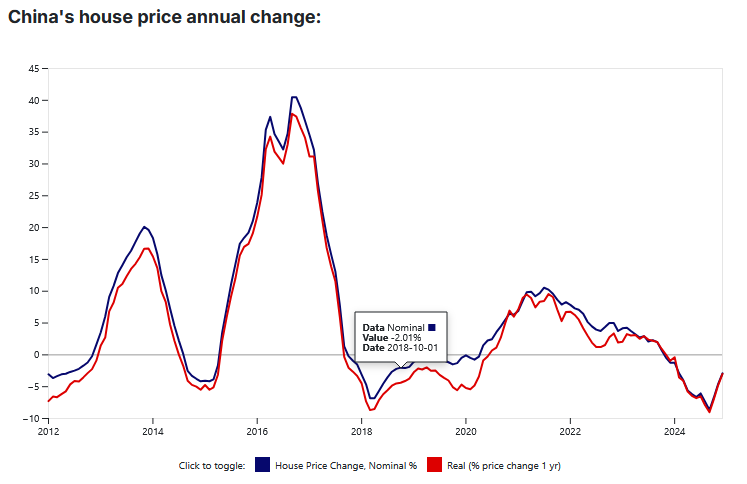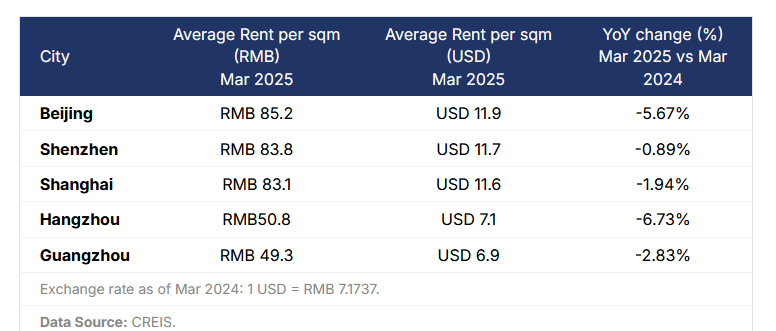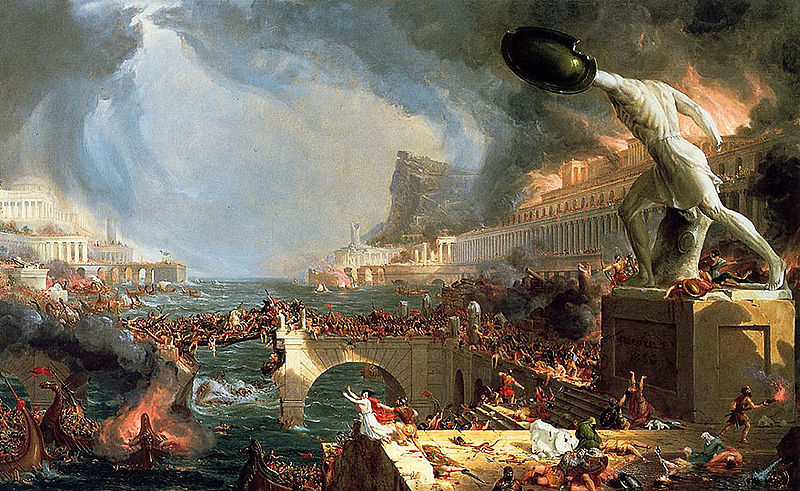In 2016, Xi said that houses were for living in, not for speculating. The Chinese government took steps to reduce prices, those steps took time to bear fruit.
Likewise, rent prices have been dropping recently:

And yes, this is a result of government policy:
While, according to the PBOC, in the pre-pandemic decade, the annual rental inflation in China exceeded 1.2%, it slowed significantly in recent years and has been in the negative in the last twelve months. In March 2025, the rent of the rental housing component of the consumer price index (CPI) showed a 0.1% year-on-year decline, trending upwards, however, from -0.4% and -0.3% annual change rates previously registered in September 2024 and December 2024, respectively.
“In recent years, rents have declined due to lower income expectations and the increase in government-subsidized housing supply. This has provided tenants with more options and increased bargaining power, making lease renewals a key challenge for leasing companies,” noted Savills in their 2025 Chinese Real Estate Market Outlook.
Now you might think “this means the Chinese economy or citizen is in trouble!” No.
In stark contrast to the slowdown across housing and industry, however, Chinese consumers appear motivated to open their wallets and spend on goods. Retail sales grew 6.4% in May, topping expectations and sharply accelerating from April’s 5.1% rise.
Now, standard Western economists think that the real-estate market slumping is bad, and retail trade going up is good, but they’re both good and they’re both a result of government policy. China wants relatively cheap real-estate and to increase the size of its domestic consumer market so its industry is less reliant on exports. (Trump has kindly demonstrated the problem with over-reliance on trade partners.)
The thing is that if real-estate had kept going up in price the way it did in the past, the CCP would be in danger: their legitimacy rests on the idea that people’s lives keep betting better. For many years I kept reading young people in China saying they couldn’t afford to own a home. That was (and still is, to some extent) a problem. Xi acted on it.
Further high real-estate prices increase the costs of every single business, since they increase the costs of employees. China wants to stay an industrial power, not become worthless rentiers and financiers, and as such real-estate can’t be allowed to increase too much.
Now for a long time real-estate is how city government financed themselves. It was an engine which allowed growth. But when it started becoming a financial game, with people owning multiple condos or houses; prices increasing faster than wages and people locked out of ownership Beijing acted.
You can’t be an industrial power if rentiers: people who expect to make money thru time arbitrage and managed scarcity, are in charge of your society.
It is also true that if you aren’t a major manufacturing power you can’t become or remain a major military power. (Britain says “Hi!” America says, “uhhhhh….”)
Anyway, China needs to keep housing and rental prices down. At the very least they need to increase less than wage increases and for many years.
All signs are, that as is most often the case, the CCP is succeeding at the policy goals it set out for itself.
If you’ve read this far, and you read a lot of my articles, you might wish to Subscribe or donate. I’ve written over 3,500 posts, and the site, and Ian, take money to run.

 So, Democratic Socialist (ie. has politics a 70s liberal would have agreed with, but is less racist) Zohran Mamdani has won the nomination as the Democratic candidate for New York City Mayor.
So, Democratic Socialist (ie. has politics a 70s liberal would have agreed with, but is less racist) Zohran Mamdani has won the nomination as the Democratic candidate for New York City Mayor.